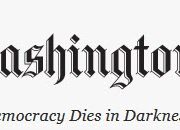This piece, co-authored by Bradley A. Smith and David Keating, originally appeared in New York Daily News on April 2, 2021.
Democratic leaders say they are fighting voter suppression, but their signature legislation contains nearly 300 pages of speaker suppression. In fact, much of their highly publicized “For the People Act” has nothing to do with voting. Instead, it would impose unconstitutional restrictions on your First Amendment rights to speak, assemble and petition the government.
Many of the provisions would expose supporters of controversial causes, providing new ways to dox people and turbocharging an already malignant cancel culture. And, while the bill proposes to squelch ordinary citizens’ speech, politicians would get a payday. The bill would subsidize House candidates with billions of dollars in public money.
The legislation, passed as H.R. 1 in the House and now being considered as S. 1 in the Senate, imposes crushing regulations on groups that so much as mention elected officials when discussing legislation, judicial nominees or other public issues. It would radically expand the law to regulate not just ads, but an organization’s own website, Facebook posts and tweets. Groups that speak would likely have to hire an attorney, and a good one. (The late Justice Antonin Scalia once said our campaign finance laws were already “so intricate that I can’t figure it out.”) H.R. 1 would greatly increase the complexity of federal speech laws, while covering many more citizens and groups.
To sidestep the regulatory morass, many citizens and the groups they belong to will choose silence or less effective ways of communicating, subtracting key voices from our democracy. Groups that do speak will pay a price. H.R. 1 would force even nonprofits to publicly expose their donors, allowing politicians and their allies to build enemies lists of Americans who support causes they dislike. When Senate Democratic leader Chuck Schumer first spoke about these provisions years ago, he bragged, “it’s good to have a deterrent effect.”
The result will be as predictable as it is unacceptable. Americans who are exposed would become new victims of cancel culture. They will be harassed for their beliefs, boycotted at their work, blacklisted and bullied into silence. Groups that fear for their supporters’ safety will have little choice but to self-censor. Adding insult to injury, H.R. 1 even requires contributors to be listed in public reports as specifically either supporting or opposing any candidates named in a group’s communications. Since most nonprofits neither support nor oppose candidates — and even if they did, the contributors might have given for other reasons — this would force groups to publish misinformation. Only politicians could be vain enough to think every mention of their names is an effort to influence their re-election.
H.R. 1 would establish a new, biased referee to enforce all these new speech-suppressing rules. The current ref, the Federal Election Commission, was created in the aftermath of Watergate as a bipartisan, six-member Commission, with no more than three Republicans or three Democrats. For nearly 50 years, this structure has stopped presidents and partisans from weaponizing the FEC against political opponents.
H.R. 1 would shrink the FEC from six to five members, jack up the power of the agency’s chair, and place it squarely under control of the president. In one fell swoop, the U.S. will move from a bipartisan commission to a campaign speech czar.
Incredibly, most of the media has ignored this unprecedented assault on the First Amendment. Self-interest may explain why. H.R. 1, like all federal campaign finance laws, exempts the media from its requirements. The law crushes the grassroots, not the massive, for-profit media corporations that seek to dominate our discourse every day.
Opposition to the measure has exploded outside the press and outside Congress. Experts, including nine former FEC commissioners, 20 state attorneys general, over 130 nonprofit organizations and the ACLU have spoken out against the bill’s threats to free speech. The House leadership ignored them, refusing to even hold a hearing on the impact to free speech. But the Senate offers a second chance.
H.R. 1 would gift politicians a massive subsidy, put cancel culture on steroids and throw the book at grassroots organizations that dare to criticize elected officials. This is not a bill “for the people.” It’s all for the politicians.














